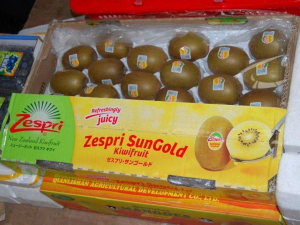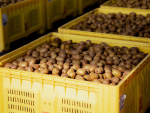Kiwifruit marketer Zespri says all its packaging will become 100% reusable, recyclable or compostable by 2025.
The announcement is one of a suite of sustainability commitments shared today with growers, consumers and suppliers at the New Zealand kiwifruit industry’s marquee conference – Momentum 2020: Standing Up and Standing Out.
Zespri also revealed commitments that by 2025, any plastic packaging will be made from at least 30% recycled plastic, and that it will reduce its packaging footprint by 25% per kg of fruit produced by 2030, building on a track record of consistent packaging improvements.
Chief Innovation and Sustainability Officer Carol Ward says the packaging announcements are based on the company’s belief in respecting and enhancing our natural environment, optimising natural resources and fostering health and wellbeing.
“While we are already one of the lowest impact foods produced we can do even better.
“Today’s consumers care about what their food is wrapped in, want to know more about where it comes from and are seeking reassurance that it's been grown in a way that enhances the environment and supports livelihoods.
“We already have much to be proud of including already having 95 percent of our packaging used to transport our kiwifruit to market as cardboard, but we realise there’s more to do.
“The ambitious targets we’ve outlined today are therefore about driving our next stage of development and aligning with our purpose, our brand promise and our premium product position,” Ward says.
The announcements follow Zespri joining some of the world’s biggest brands in 2019 to sign up to the Ellen MacArthur Foundation’s New Plastics Economy Global Commitment and working with its industry partners to create a circular economy for plastics.


















